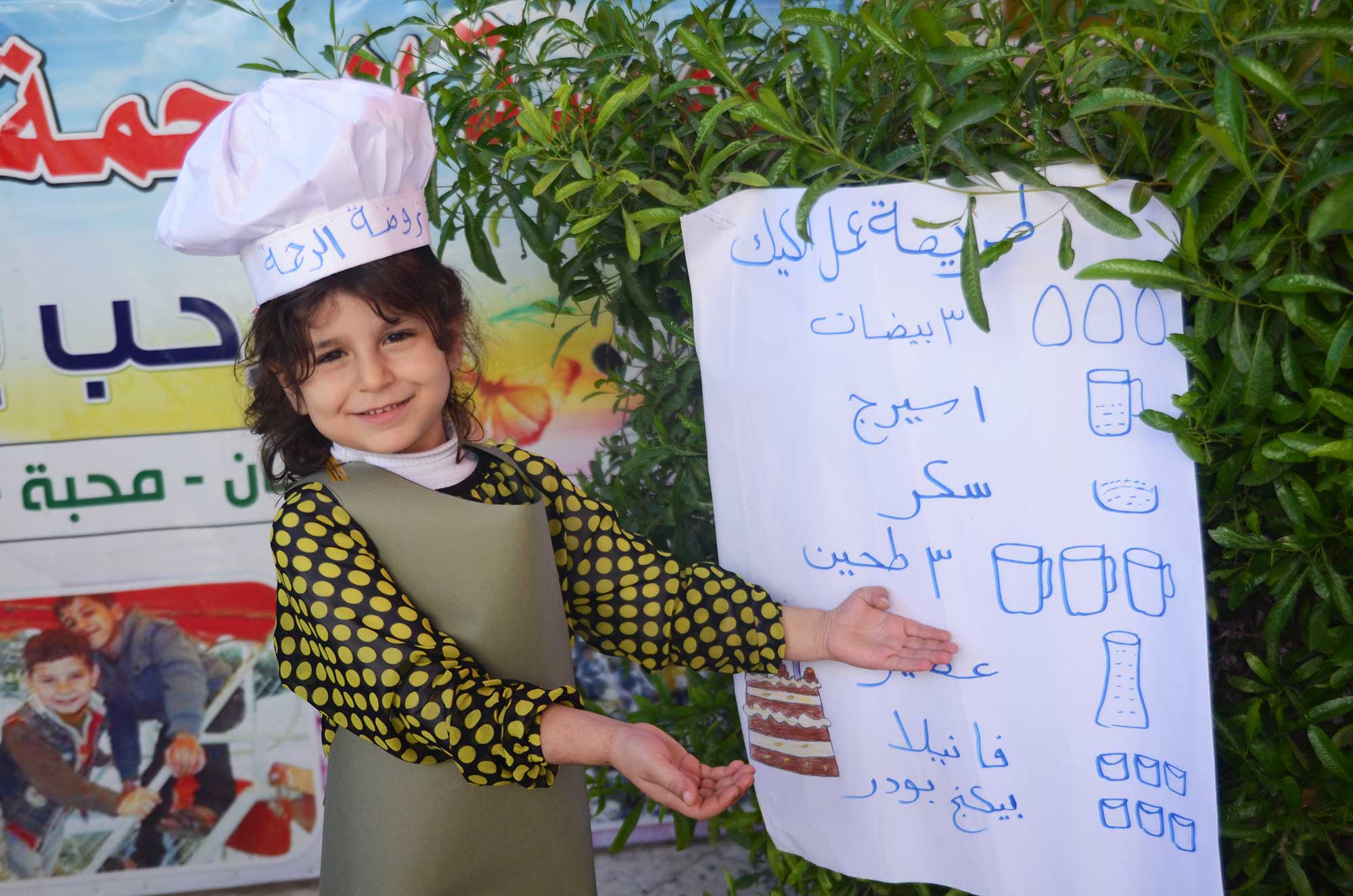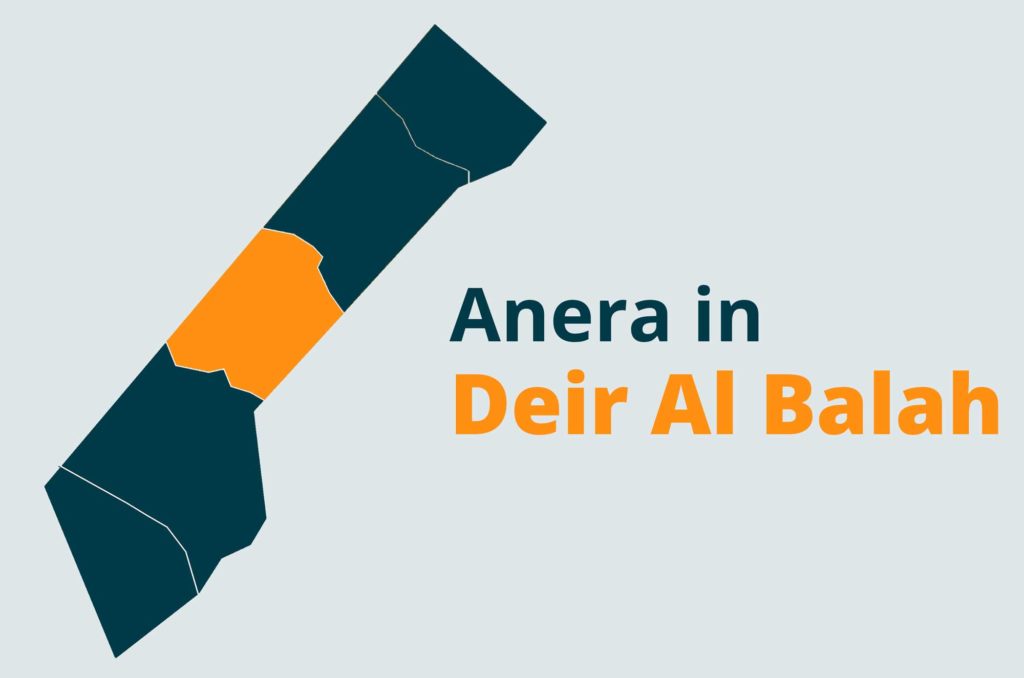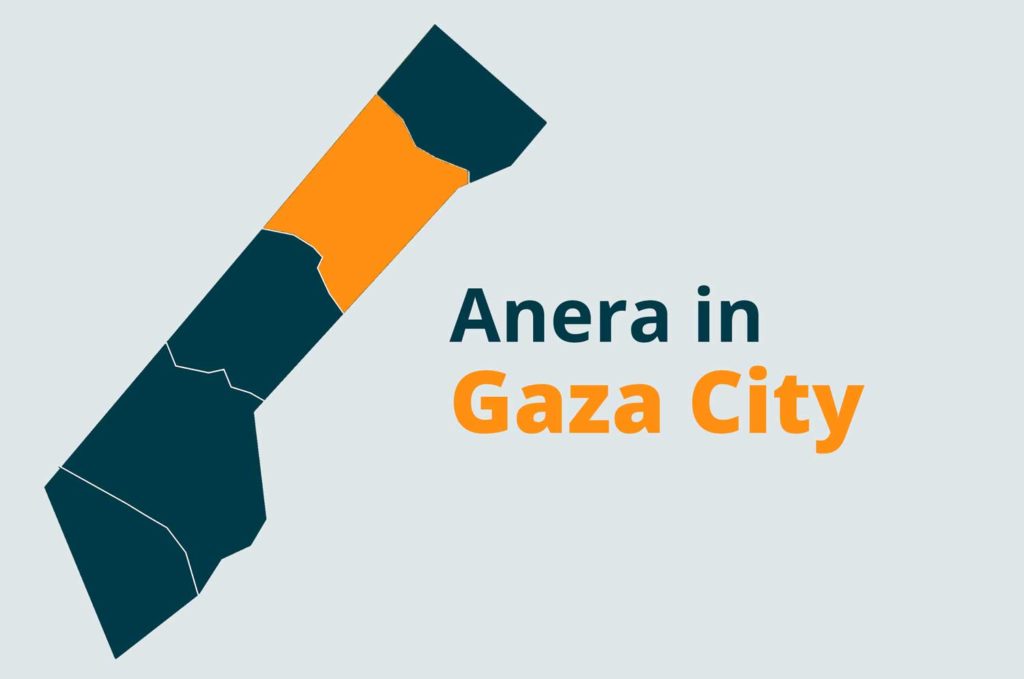Nov, 2015
Through baking and other hands-on activities, children in Palestine are developing cognitive and motor skills.
A handwritten recipe hangs on a green tree outside Al Rahma preschool in Gaza. Children and teachers check the list as they gather around a small table to prepare a delicious treat.
It’s a lot of fun. But teacher Iman Ali explains that cooking at this preschool is about more than just preparing food – it’s a multifaceted educational activity. “This is a way to introduce new words to our children in a fun way,” she says with a smile. “Today we’re making cake and the kids will help make it happen and learn some new vocabulary, like vanilla, baking powder or cooking oil.”
Through cooking, children also improve their math skills by doing simple tasks like counting eggs or pouring water into a measuring cup. The child-friendly cake recipe lists quantities and measurements but also has pictures to make learning new skills easier. For instance, “one cup of milk” is written and then illustrated with a representative drawing.
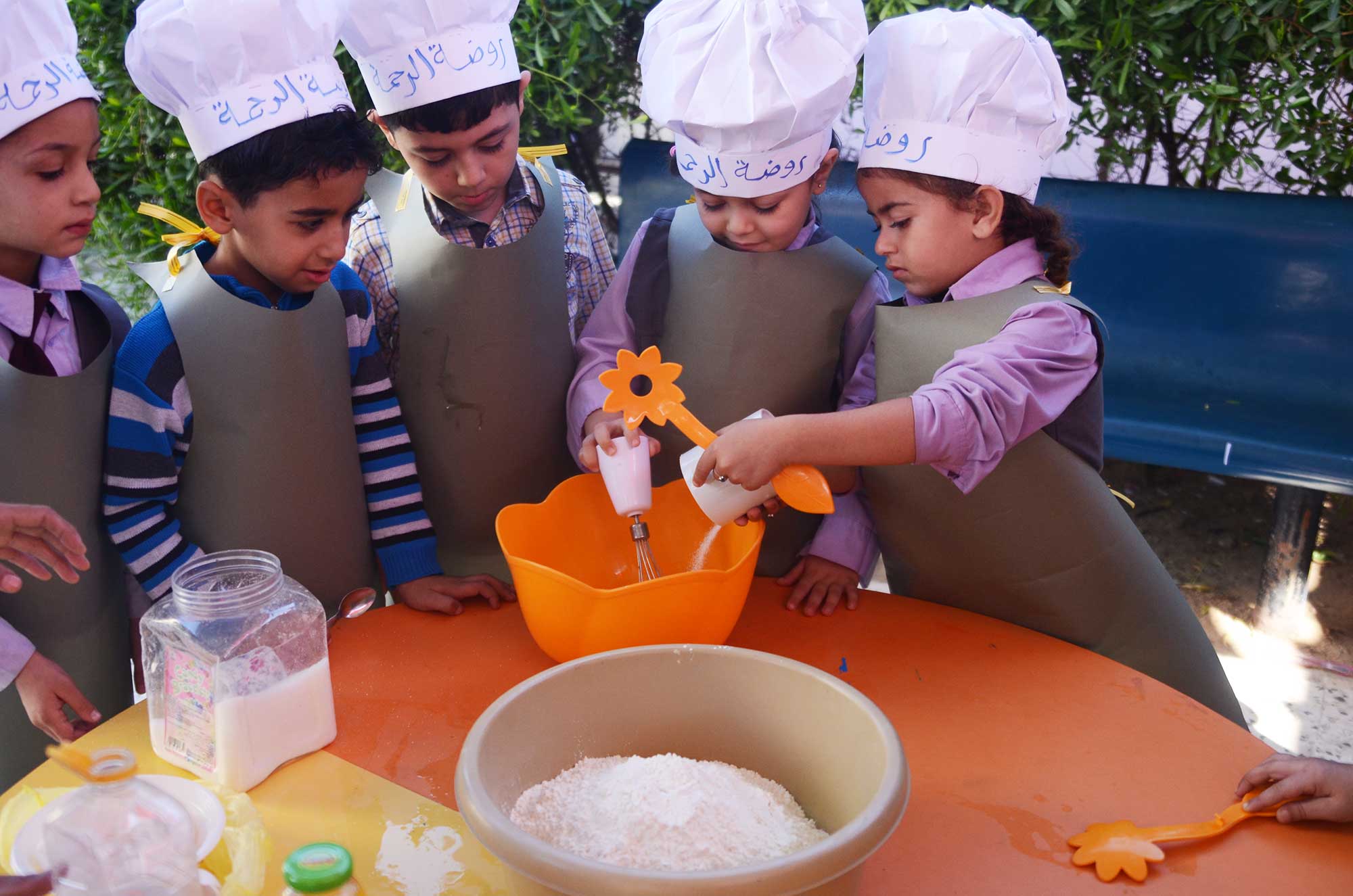

Activity Centers Critical for Children in Palestine
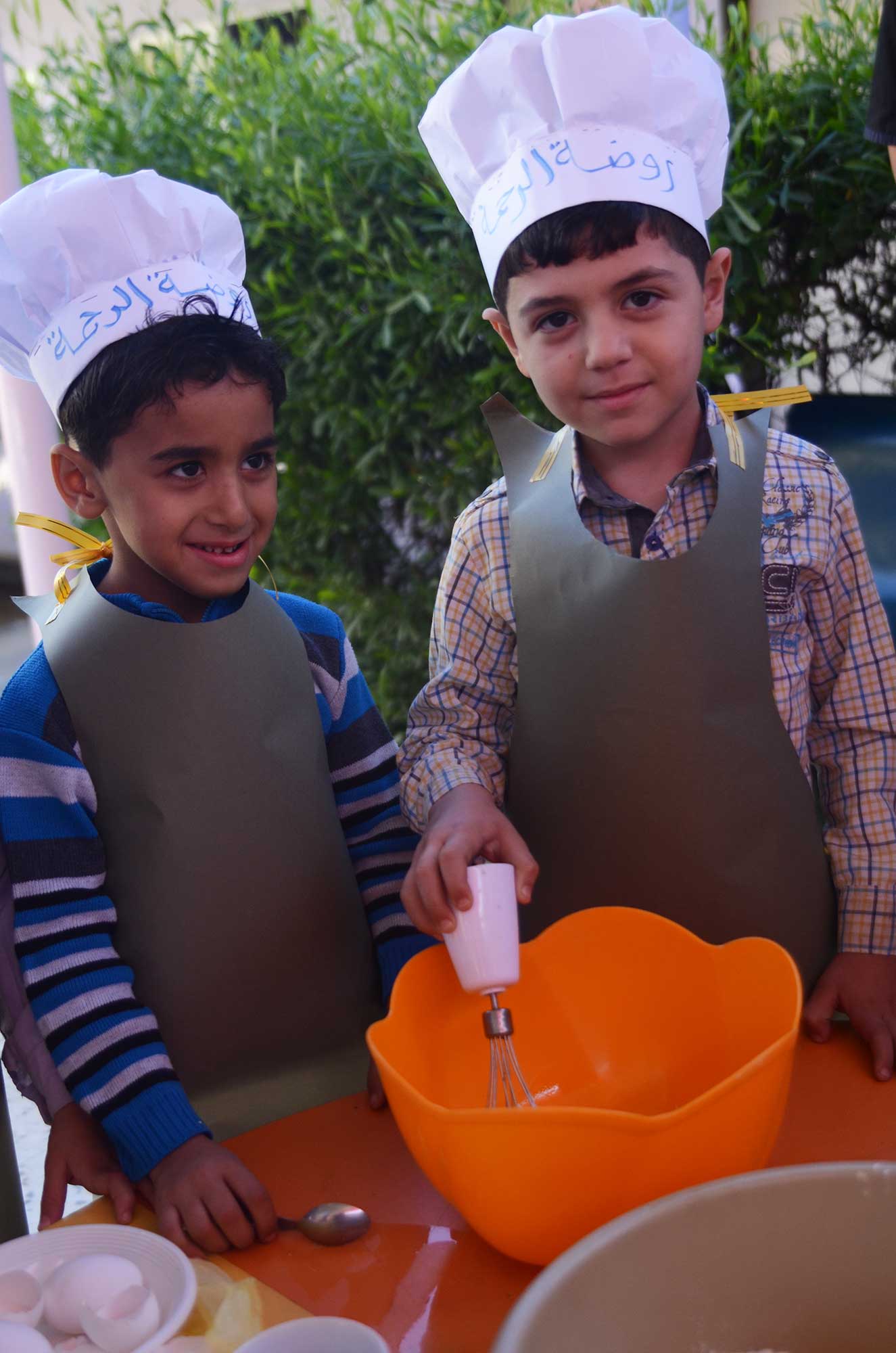

Cooking for the children also opens up the world of science and nature as they do experiments by themselves, with help from the teacher. “They follow the steps of scientific research and they learn how to solve problems as well,” explains Suad Lubad, an Anera Early Childhood Development (ECD) trainer, who advises the teachers on active learning methods as the core of a successful educational program.
Anera recently renovated Al Rahma preschool inside and out, adding bright colors and activity centers to classrooms and play areas. The cooking class takes place in the schoolyard as part of the science and nature center activity that allows children to explore and experiment with handmade materials or recycled materials and other educational tools, from flour, salt and spices to magnets, tree leaves and flowers.
Anera offers training to teachers to incorporate creative learning into activity centers, such as reading, science, art and music. The activities are an essential part of active learning that Anera’s Right Start! ECD program has been promoting in preschools.
During an activity like cake baking, the teacher can observe the children’s interaction and how they handle different challenges. ‘The kids learn that if they want to have a good cake they must follow the recipe so if they face any problem as they prepare the cake, they have to figure out how to resolve it,” says teacher Iman Ali.
Teacher & Trainer Insights on Interactive Learning
Trainer Suad Lubad describes problem-solving as the essence of the math exercises, that include addition and subtraction.
“For instance, when children make dough from flour, water, oil and sugar, sometimes the mixture gets watery and this prompts them to look for a solution. They may think to add more or less flour and this is called comparison. They know that some materials are liquid, some are hard, some are powdered, and some have a smell and some don’t,” says Suad.
The fun class is also a valuable learning experience for the teacher who shares information with her trainer about the children’s physical and cognitive development. Iman reflects:
“The main thing is that in this science activity center and all other activity centers the children have a lot of fun, which makes the learning process a thrilling and memorable experience that stays with them for the rest of their lives.”
